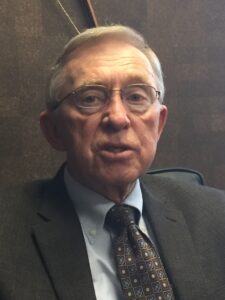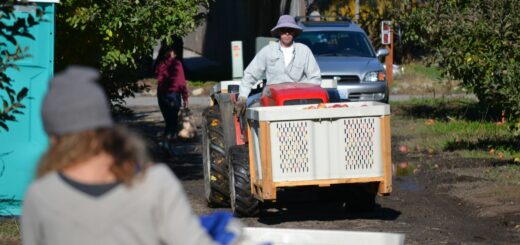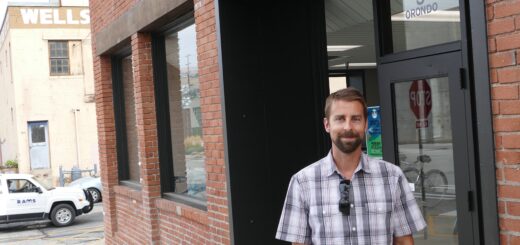Could we slash chronic homelessness like Utah?
Expert Lloyd Pendleton was in the Wenatchee Valley this week to talk about how the State of Utah virtually solved its chronic homelessness by switching to a new approach called “Housing First.”
He sat down for an Art of Community NCW interview to talk about the details of the Utah experience and also what it would take for the Wenatchee Valley to address the issue of chronic homelessness.
The solution he proposes does not address all forms of homelessness, so it’s not a panacea, he is quick to point out. While chronic homelessness has been reduced 91 percent in Utah over 10 years, the total number of homeless has stayed about the same.
But the vast majority of community resources are tied up in treating the chronic homeless population so Utah is saving substantial dollars. The same would be true here in our valley.
Under Housing First principles, the first priority is to get individuals into housing and then wrap other services around them so that they can address their other issues.Expecting them to solve those other issues before qualifying for housing simply does not work. There are too many barriers.
What impressed me about Pendleton is that his initial reaction to those who are homeless was that they should pull themselves up by their bootstraps and get a job. However, when he started working in a homeless shelter, however, he discovered the tremendous human and community cost associated with homelessness. These are human beings, he pointed out, and they have serious challenges. “They don’t have bootstraps to pull themselves up,” he told me.
Pendleton feels it is a moral imperative to find ways to help these individuals while at the same time creating accountability. Individuals under Housing First principles can get kicked out of the system if they are selling drugs or otherwise creating problems for those around them.
Pendleton was invited to come to North Central Washington to share the experience of the Utah Homeless Task Force and to assist local decision makers in figuring out how we might address our challenge with chronic homelessness. The Community Foundation of North Central Washington and the Women’s Resource Center collaborated to fund his visit.
During his visit, he met with various civic leaders as well as advocates for the homeless in the valley.
In an interview, he said he was aware that the lack of available affordable housing is the single biggest issue our valley faces when it comes to addressing chronic homelessness. There is a 1 percent vacancy rate for rentals in the Wenatchee Valley and therefore virtually no available apartments to be found that allow low-income individuals.
Utah solved that issue by developing a strategy and building permanent supported housing. That would take a significant civic effort in our valley to make that happen. Another challenge is that our community would need to fund the organizations like the Women’s Resource Center to a greater extent to handle the additional services the chronically homeless would need. And the Women’s Resource Center has been feeling the financial pinch in the last few years, executive director Laurel Turner told me.
Pendleton also suggested that if we are serious about addressing this issue, a strong group of civic leaders would need to come together to support a fully funded Housing First effort. The good news is that the regional homelessness plan is built on Housing First principles. Now we just need to figure out a way to pay for the costs. We could reduce caseloads for the police, emergency rooms, social service agencies and jails if we can find a way to make this happen.
Turner said by her calculations, it would be half as expensive to manage clients in Housing First than just having them out on the street.



